Thoughts on Star Trek: Picard
by Mike Lunsford, Editor-In-Chief of the Great Geek Refuge
That was one heck of a first season for Star Trek: Picard! Russ Brown and I did an episode-by-episode recap series that you can check out if you want more detail, but if you’re looking for a review of the whole 10 episode series and my take on it, then you’re in the right place!
When looking at what this show accomplished in 10 episodes, it truly is something to marvel at, in regards to storytelling but also bringing back a lot of characters most of us had assumed we would not see again after Star Trek: Nemesis. It also took the final film of the Next Generation crew and gave some much needed depth and explanation. And like it’s CBS All Access predecessor Star Trek: Discovery, Star Trek: Picard moved forward to a modern story-telling aesthetic that makes for a more compelling overall experience.
Let’s set the table for season 1 of Picard: the famous captain of the USS Enterprise D and E has retired to his stately chateau in La Barre, France. 14 years prior, then a Fleet Admiral, Picard was building a rescue fleet to save the Romulan people from an impending supernova. However a galaxy-changing attack on the Utopia Planatia shipyards on Mars changed Starfleet’s mind and they scrapped the project. Furious, the Admiral resigns his commission, disillusioned with Starfleet and the Federation. Living a peaceful but unfulfilling life, Picard often dreams of his fallen comrade Commander Data, the android who saved his life by sacrificing his own, proving that Jean-Luc has never gotten over his death.
“I don’t want the game to end.”
After an interview about the anniversary of the Mars attack doesn’t go well, a young woman who needs Picard’s help desperately shows up at the chateau. She has a unique connection to Data and that intrigues Picard enough to begin a new quest to help her.
For those of you who want to see the show and DON'T want any spoilers, I’ll give you my spoiler-free review here:
The series is excellent. It’s the perfect balance of answering questions about the past and moving forward with a new story. It manages to introduce interesting new characters and bringing back classic favorites. There are times where it drags in the beginning but there isn’t a single throwaway episode, each one of those dragging episodes is telling much needed backstory. Patrick Stewart is fantastic as Jean-Luc Picard and so are Star Trek newcomers Isa Briones, Michelle Hurd, Allison Pill and Santiago Cabrera. It’s a great series for those who are new to Star Trek and fans of the the classic series and The Next Generation. It’s the perfect mass-appeal series and worth every minute of your time.
From here on out, TONS of spoilers, so bail out now if you don't want them. Let’s talk about the biggest positives of season 1.
The Story
When I reviewed Star Trek Discovery Season 2 last year, I had this to say about the modern storytelling aesthetic and it fits for Picard as well:
There’s a lot of talk around the web about people’s displeasure with the style of storytelling Discovery has chosen. “It doesn’t feel like Star Trek.” I personally am sick of this refrain. As I’ve stated in years past, Star Trek needed to evolve or it would have been left to the past. A newer, more dramatic story-telling vehicle is not the worst thing that has happened to a franchise. It has given this series in particular a different feel as the missions don’t seem unimportant.
If the reason why you didn’t like Discovery was because they tell one cohesive story for the entire season, then you’re not going to like Picard and that’s a damn shame. If you can’t grow past the things you liked in your formative years, you are missing out on a ton of great media. Star Trek: The Next Generation existed in the 80s and 90s, well before DVRs, on demand viewing, streaming services, etc. Television had to be serialized in order to keep people interested. That’s just how it worked. Shows in the 21st century are not beholden to those same limitations. Now, you might be rolling your eyes and saying “but that’s what made Star Trek great!” Really? That’s what was great about it? Not the optimistic future that humanity can move past its current pitfalls and come together as a race to explore the galaxy with other space-faring races? Not the commentary on inclusiveness and desire to better ourselves? We must have been watching different series then.
Here’s another huge benefit: there are no throwaway episodes with a shortened season of 10 episodes that are telling one story. Star Trek: Picard is the spiritual successor to those 90s episodes of Next Generation where it takes high concept science fiction and mixes it with incredible characterization and powerful performances. Its taken the soul of what made people fall in love with Star Trek: The Next Generation and raised the stakes and given you something much better to watch.
As stated above, Jean-Luc is retired and has been since Starfleet abandoned their efforts to rescue the Romulans after their star went supernova. He resides in his family’s chateau in La Barre, France, running a vineyard and writing history books, a life many would envy. But Picard is haunted by the death of his comrade Commander Data, the android second officer of the Enterprise who gave his life to save his captain. He is interviewed by a news outlet on the 14th anniversary of the Mars Incident: an android worker revolt that caused the deaths of tens of thousands of people and the destruction of the Romulan rescue fleet. He doesn’t mince words as he takes Starfleet and the Federation to task for devaluing Romulan lives for political reasons.
Meanwhile, a young girl named Dahj Asha (Isa Briones) is assaulted by a Romulan death squad for unknown reasons but somehow, the girl “activates” and mops the floor with the assassins. She contacts her mother who tells her to find Jean-Luc Picard, who will most certainly help her.
When she shows up to Chateau Picard, Jean-Luc is amazed: the girl looks identical to a painting Data had made decades ago that he called “Daughter.” From there, a story that involves Romulan spies, religious zealots, a confiscated Borg cube, former Borg drones being rehabilitated, traumatized former Starfleet officers, Romulan equivalent to Shaolin monks, an off-the-books starship whose captain has 5 different EMH’s that are all versions of him with different accents, a Starfleet admiral who loves using the f word, a casino planet and so much more unfolds and captivates.
Season 1 of Star Trek: Picard has a story that is the perfect amalgam of old and new. It uses the same questions about artificial intelligence gaining sentience that The Next Generation famously tackled and merged it with some modern issues we are currently dealing with such as how religion and science coexist, what the role of government is when it comes to moral choices when they have been infiltrated by religious fanatics and how important it is to do what’s right when that government fails to do so. It also shows how wide-reaching restrictions and bans can have unforeseen consequences. Following a trend that started with Star Trek: Discovery, we also see the effects of trauma on members of Starfleet; that even in the waning years of the 24th century, humans are still human and so are androids.
Let’s delve into that human element of Picard a bit more. This season focused a great deal on how our characters deal with the various traumatic moments in their lives. Let’s start with our members of Starfleet. First we have Admiral Picard’s former executive officer on board the U.S.S. Verity, Raffi Musiker (Michelle Hurd). The other was Cristobal Rios (Santiago Cabrera), the former XO of the U.S.S. Ibn Majid. The writers do an excellent job of portraying PTSD and how it manifests itself in different and horrifying ways. Raffi turns to drugs and alcohol. It ruins her relationship with her husband and her son. Rios did the stereotypical “strong male” thing and refused to talk about it, only mentions what happened in cryptic statements but will not speak further about it.
Mirroring Rios’ lack of dealing with his trauma, even our lead character, Jean-Luc Picard still has issues with the Borg. When he transports to the Artifact and realizes that he’s back on a Borg cube for the first time since his assimilation nearly 30 years ago, he has a panic attack. Luckily, Hugh (Jonathan Del Arco) was there to help him and did so in the best possible way: through love and compassion. We also see Deanna Troi and Will Riker dealing with the loss of their son, Thad to a deadly disease that could have been cured if positronic brains were not made illegal. They somehow have managed to move forward with their daughter, Kestra, who ends up proving to be wise beyond her years and shows that family can often help heal you from tragedy.
And while Picard is visiting Troi, Riker, and Kestra on Nepenthe, Soji (Isa Briones) is dealing with the trauma of finding out that she is in fact an android after believing she was human and that her twin sister was murdered by Romulan assassins. As far as Raffi and Rios, both characters dealt with their trauma in different ways but more importantly, they both realize that talking about it and relying on each other is the best way forward. The care given to these aspects in the story was definitely appreciated. The tie that binds all of these characters together in their healing is love and compassion. It was shown to be one of the best ways to solving problems which was a fantastic message. Bravo writers.
a lesson we all could learn in these strange times: love and compassion are a key in helping others
The biggest issues I had with the story were plot holes and devices used to fix issues, mcguffins if you will. We end the season without knowing what happened to one of the main villains, Narek (Harry Treadway). We’re also left not knowing what will happen with the XBs who remained on the Artifact after it crash landed on Copellius. But also, in the finale, Picard and Agnes are flying La Sirena by themselves: couldn’t they have activated the EMHs that help run the ship with Rios? And that purple thing…the mcguffin introduced in “Et in Arcadia Ego Part 1” that requires the user to “imagine the solution to the problem” then it magically fixes it. Are you serious? That’s a bit much…but Arthur C. Clarke’s 3rd law about the future states “Any sufficiently advanced technology is indistinguishable from magic.” Who am I to argue with Arthur C. Clarke? I guess we can let it slide.
“just imagine it’s fixed then it will be!” Oh come on… well…Copellius is shown to be far more advanced technologically so…tech = magic.
What did irk me a bit was the easy out the writer’s gave themselves in the finale. Warning: this is a huge spoiler so stop reading if you haven’t seen it. Skip past the part with the lines.
It was established early in the season before Picard took off on another space mission that a brain abnormality that has plagued him all of his life was now a ticking time bomb. Time was now against him and it reared its ugly head in the 2 part season finale “Et in Arcadia Ego.” As the final episode played out and Picard succumbed to the brain abnormality, I was almost impressed that the writers would take that kind of risk in killing off the title character. It would have been a bold move, almost as bold as having the captain of the Enterprise get assimilated by the Borg.
But…they backtracked quickly. That golem that was meant for Dr. Soong? They gave it to Picard! Awwwww. Isn’t that sweet? And then we find out that they put in an algorithm in the golem so that it ages normally and dies eventually. THAT’S BULL CRAP. Why give him the brain abnormality then? The entire first season was excellent and I didn’t really knit-pick about any of the other decisions but this? This was suspect.
None of those issues took away from the overall product though because this was a well thought-out, carefully crafted story that was not in a rush to try and cram in a ton of back story. The ending had points where it was a bit drawn out, but holistically, the first season was excellent. It added humanity to an awesome science fiction story and wasn’t afraid to ask some really tough questions.
Surprises
When the series began, we knew that Patrick Stewart would be in the show and that was really the only confirmed character from Next Generation confirmed. As trailers started getting released, we also knew we’d see Brent Spiner, Jerri Ryan, Jonathan Frakes and Marina Sirtis. What we didn’t know was how integral to the story they would be.
Let’s start with Jonathan Frakes’ Will Riker. As a long time Star Trek fan, I always loved Riker, but the 4 Next Generation movies didn’t do him justice at all. With First Contact, he did have a major role and any limitations to the role he had was because he was directing. Same with Insurrection: he was in the director’s chair. But with Generations and Nemesis he was more or less the guy who ran the ship while Picard went on adventures and he wasn’t given much to do otherwise. Picard fixed this. The two episodes of Riker we got were exactly what Next Generations fans have been hoping to see for the last 30 years or so. Riker got in Picard’s ass and called him out on his character faults: headstrong, stubborn, and feeling that he has to go it alone. We also got to see him as a pizza chef, a grieving father to his son, and a wonderful father to his daughter Kestra. And when Picard needed the Federation’s help, who was the badass in command of the armada of Starfleet vessels? That’s right: Captain William T. Riker.
While she didn’t get as much time on screen as Will Riker…man it was good to see Deanna Troi on screen again. Marina Sirtis looks like she barely aged and it was like seeing an old friend you haven’t seen in years. Even while dealing with her own trauma, you could see that she still remained hopeful. I loved how the Riker-Trois interacted as a family unit.
In the realm of surprises, I was amazed at how good the acting was from the newcomers. This is a damn good cast, and as the end of season 1 makes it seem, we’ll see all of these actors again. We’ll start with Isa Briones. She played 3 roles in Star Trek: Picard (4 if you count Janna) and she was singing the version of “Blue Skies” that ended season 1 (we’ll go more into that later). She played Dahj, Soji and the villainous Sutra and did an incredible job. She manages to plays the role of someone who believes they’re human only to find out that they’re an android, no easy task for sure. As we come to find out, she’s cloned from a single positronic neuron from Commander Data and we are treated to a fantastic reminder of this in one of the episodes. The relationship that builds between her and Picard is fantastic as they both try to understand what it means to have someone real to care about. Briones shows some great depth as well when we see her deal with the treacherous p'takh of an ex-boyfriend Narek (Harry Treadaway) who used her in an attempt to destroy all of her people. I can’t wait to see the character growth we’ll see from Data’s “daughter” Soji.
Santiago Cabrera’s portrayal of Cristobal Rios was incredible, mostly because playing the role also meant that he got to play 5 other versions of himself. When we first encounter Rios’ ship La Sirena we find that he has variations on the EMH working throughout his ship in various roles. Not only that, each role (navigator, medical, engineering, etc) has a different accent and outfit. Cabrera really gets to flex his acting chops as he sinks into each of these accents.
On top of the fun that was these various dialects, we got to see that Rios is haunted by his past and is still dealing with some trauma. He portrayed these scenes perfectly and in conjunction with the writers, show that the new blood writing and acting in Star Trek really get that human beings and their emotional states is something worth exploring, and that heroes are not indestructible and that’s actually more engaging.
We got to see incredible performances from fellow Star Trek newcomers Michelle Hurd who played Raffi and Allison Pill who played Dr. Agnes Jurati. Raffi was Picard’s first officer when he became Admiral and tried to save the Romulans. When Picard tenders his resignation from Starfleet, Raffi is subsequently fired. Her theories about a Romulan conspiracy were dead on and probably contributed to her early exit but she takes it hard. She turns to alcohol and drugs as her coping mechanism, which is a common outlet for people in her situation. She was essentially gaslit (gaslighted? Not sure the past tense on that one) not only by Starfleet due to Commodore Oh’s infiltration but also by her family and friends. No one believed her even though she was nearly 100% correct. She had figured out the Tal Shiar was involved in the Mars attack. Imagine how awful that would feel to find the truth and no one believes you, even your captain.
When it comes to Agnes Jurati, what a ride this poor woman went on. She went from android advocate to forced into believing religious dogma and back to android advocate and in between, killed the man she loved and nearly killed herself because of the guilt. Just incredibly powerful performance from both actresses.
Now, just because they didn’t get full paragraphs doesn’t mean I wasn’t surprised by the depth shown by the other actors and actresses in this series. Jerri Ryan’s reprisal of Seven of Nine was terrific and her scene with Icheb was quite possibly one of the most heartbreaking scenes I’ve witnessed in all of Star Trek. I’m glad she stuck around for more than just a few episodes. The father-son relationship that we got to see between Picard and Elnor (Evan Evagora) was interesting and I want to see more from him. The previously mentioned Narek was slimy and disgusting, like every person you’ve ever met that tries to act like their religious beliefs somehow entitle them to hurt and/or kill others while they have a smile on their face. Harry Treadaway did an excellent job of making me hate him while still being charming.
Lastly, and most certainly not least we come to the role of everyone’s favorite android: Commander Data. As this series played out, I thought we would only see Brent Spiner in Picard’s dreams. I was pleasantly surprised when we were treated with a previously unknown Soong son and a chance for Spiner to finally give Data the ending he deserved. As stated by Russ on the podcast, this series seemed dead set on undoing all things Star Trek: Nemesis. I saw it a little differently. I think what they ended up doing was filling in the gaps of what Nemesis left us with and made Data’s death much more satisfying and touching by delving into the relationship that Picard shared with him.
When you look back on their time together, Picard was more than a captain to Data: he was more like a father figure, and Data like a son to Jean-Luc. We find that after Picard “dies,” his consciousness was duplicated and transferred into a complex quantum simulation that housed the memories and programming of Data. Their final conversation is beautiful and has a uniquely Data moment
Picard: Among the many many things that I regretted after your death was that I never told you…
Data: that you loved me.
Picard: (nods)
Data: knowing that you loved forms a small, but statistically significant part of my memories. I hope that brings you some comfort, sir.
Data then asks Picard a favor: when he leaves the simulation, he must terminate the program. Picard is hesitant as he doesn’t want to leave this time with Data, but also he didn’t understand where he was and what had happened (I’m assuming he thought this was the afterlife). Data explains that Agnes and Alton Soong copied his brain and consciousness and that he cannot remain in this simulation forever. But he requests that Picard end the simulation. He states that life, love, friendship, all of those things lose their meaning if they are not finite. Death gives life meaning, “a butterfly that lives forever isn’t really a butterfly,” he says. Jean-Luc agrees but also joins Data and holds his hand as he ends the simulation for his long time commrade.
Why It’s Worth Your Time
Star Trek: Picard Season 1 is exactly what I wanted: it took the heart and soul of The Next Generation and gave it a modern update. It starts off by presenting a world full of darkness, depression, trauma, despair and shows us that hope never dies and that it is darkest before dawn. Patrick Stewart added depth to a character we all thought we knew so intimately that nothing could surprise us. We saw that those heroic “yin” traits also had a negative “yang” side. His stubbornness and arrogance caused a myriad of consequences but he did learn from his mistakes. To quote him
“I let the perfect become the enemy of the good”
In our current world, this is a wonderful example to all. Don’t let “perfect” get in the way of good. We got amazing performances from Star Trek alum Marina Sirtis, Jonathan Frakes, Jerri Ryan and an amazing swan song for Data by Brent Spiner. We were also treated to some newcomers that showcased that Star Trek continues to be in good hands. We know that at a minimum, there will be at least one more season of Star Trek: Picard and with such a fantastic first season, the next adventure should be just as captivating. 4.5 out of 5 stars. Damn near perfect, with the exception of some odd choices in the finale, this was exactly what I was hoping for when they announced this series.



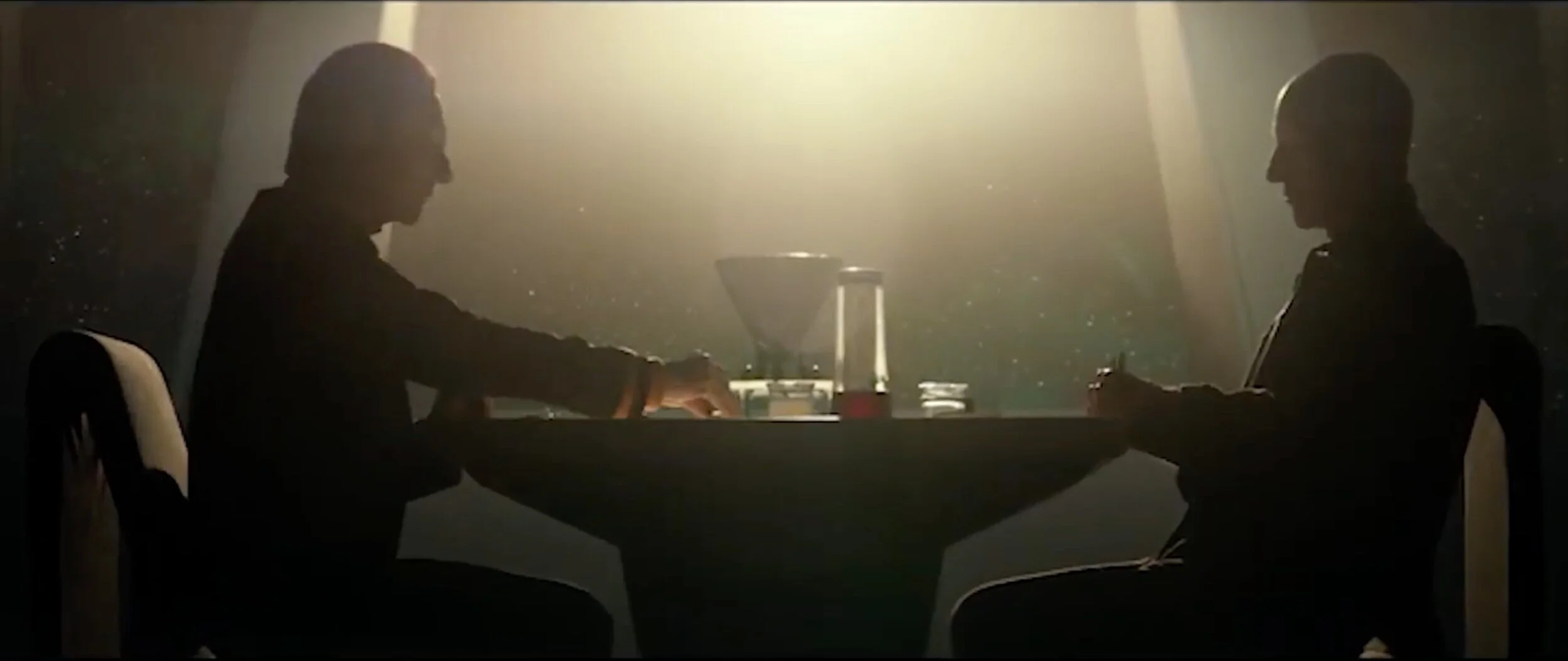



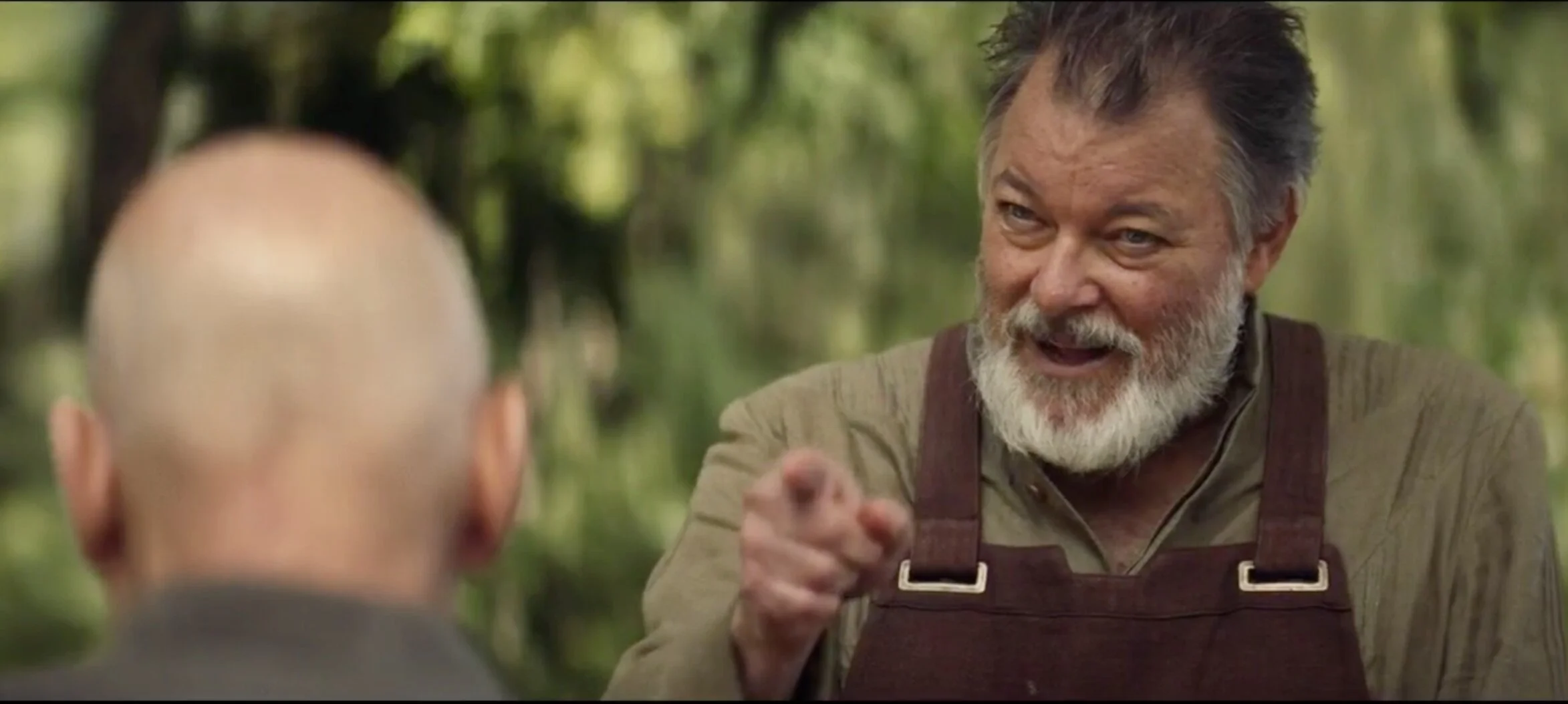
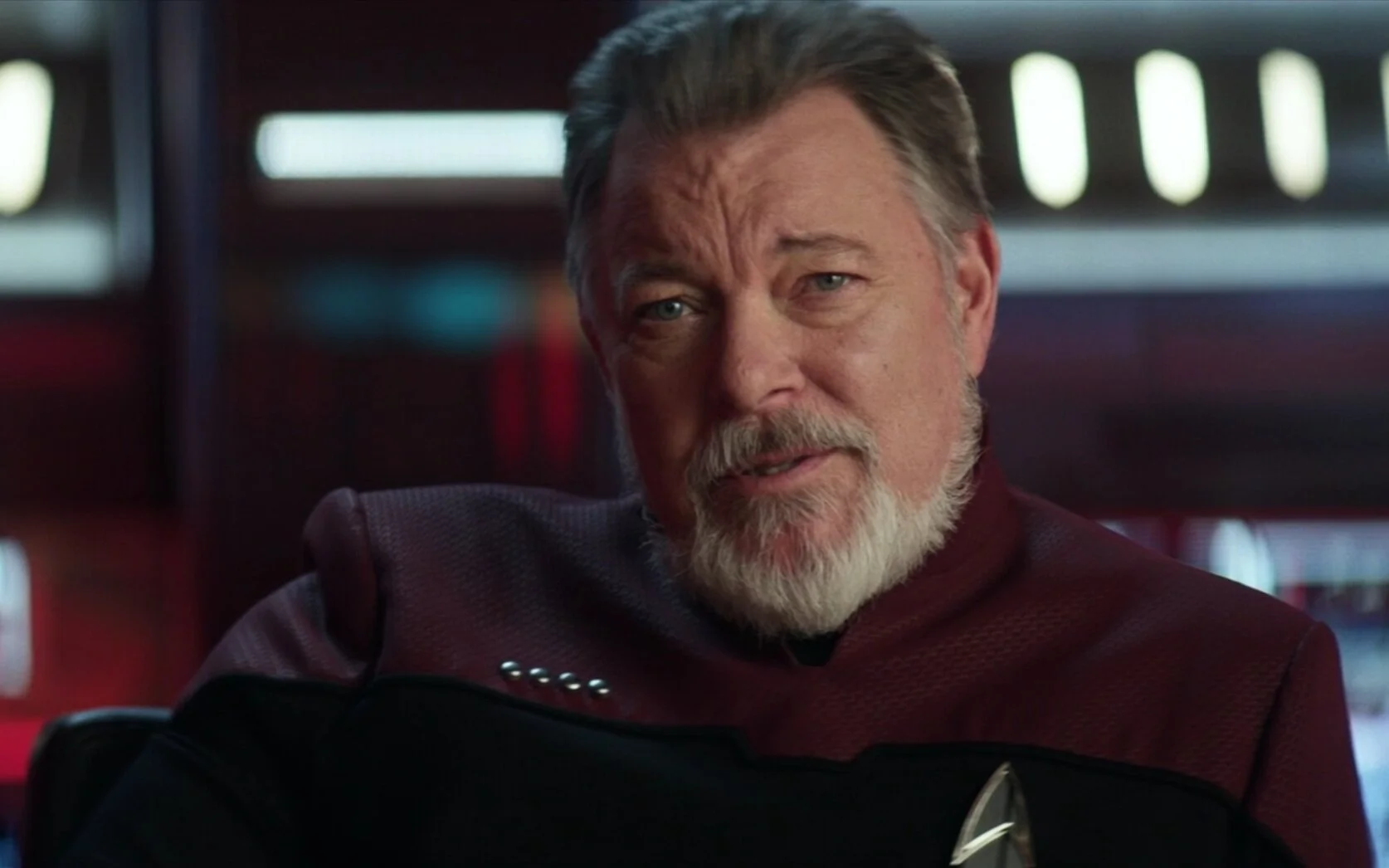
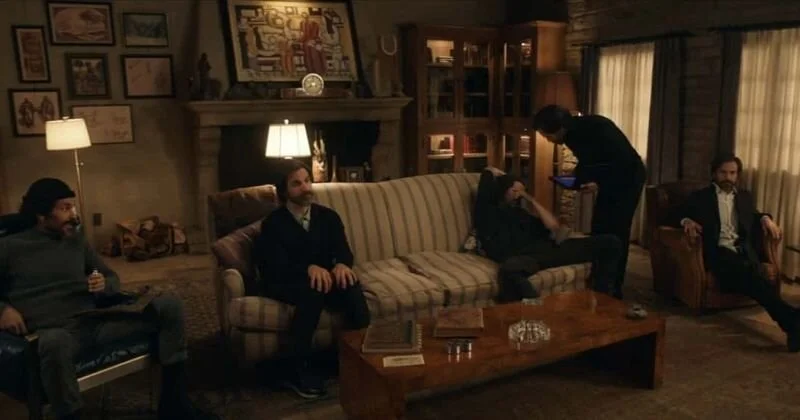
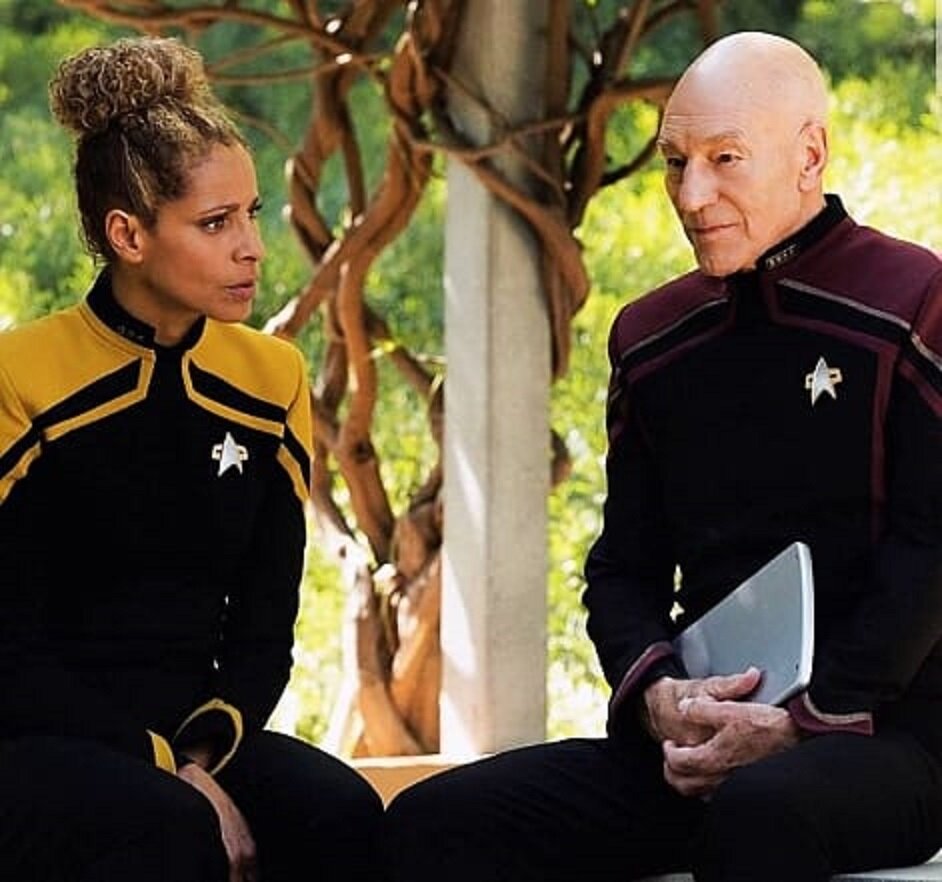
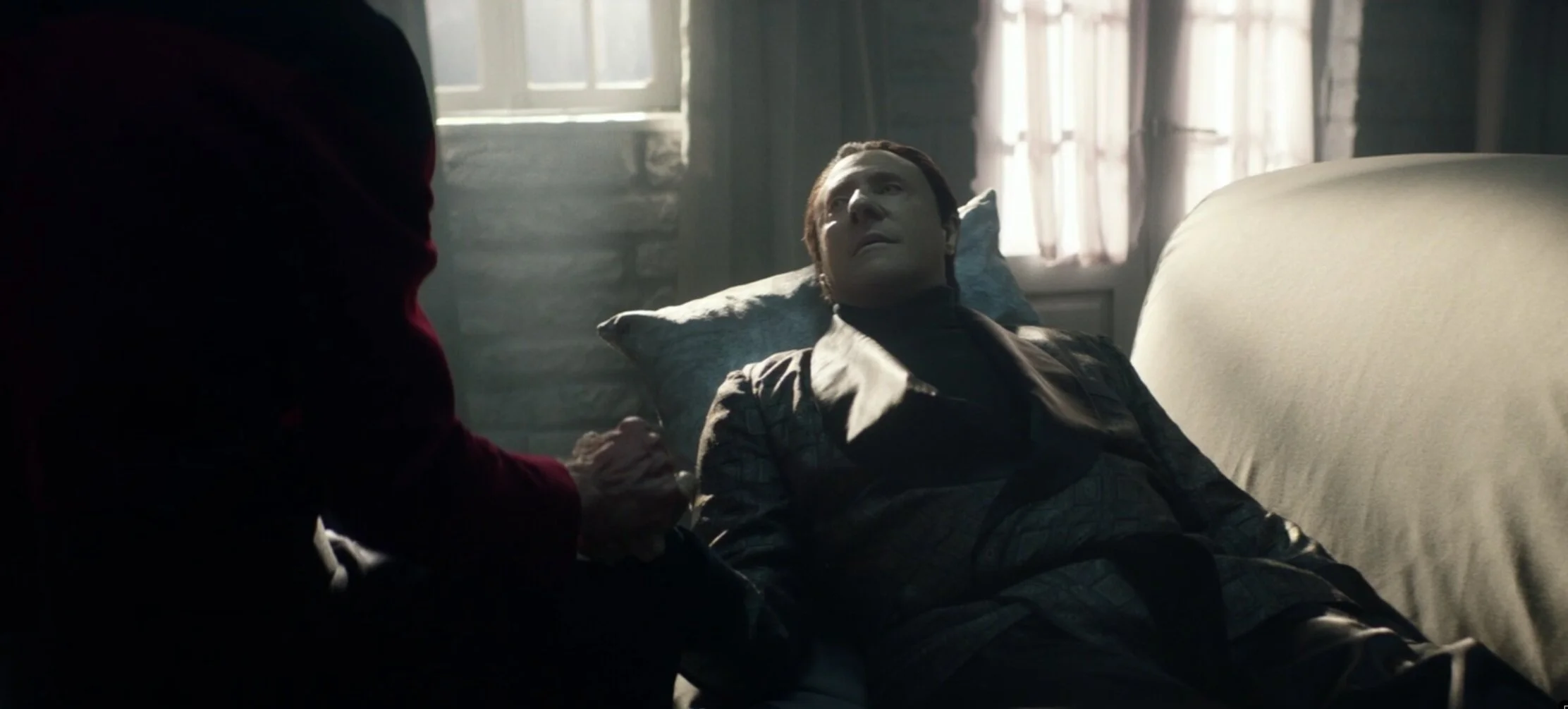









Chelsea House has her weekly “House of the Dragon” episode recap! This week, she delves into Episode IX and does a character analysis.